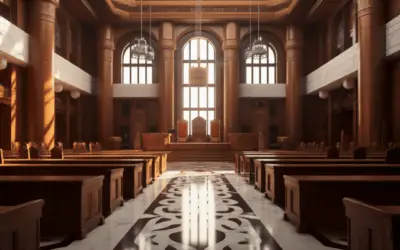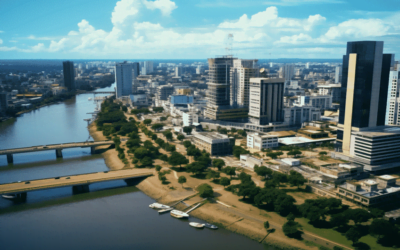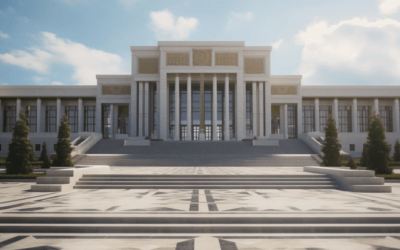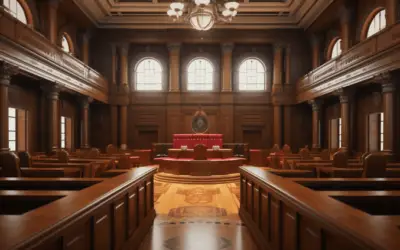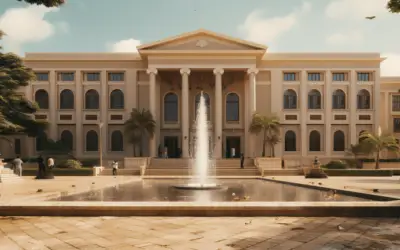Hey there, fellow drone enthusiasts and curious readers! Have you ever found yourself in a world of perplexity when it comes to navigating the intriguing realm of Botswana’s drone laws? Well, you’re not alone!
Many folks out there are on a quest for clarity and guidance on how to soar through the Botswana skies with their trusty drones.
I get it; the intricacies of drone laws can be confounding, especially when you’re eager to take flight.
But fret not, my friends, for I’ve delved deep into the labyrinth of Botswana’s drone laws. I’ve scoured through the official documents, checked and cross-checked the latest updates, and deciphered the rules and restrictions to bring you the answers you seek.
The answers lie within the legal framework that Botswana has laid out for drone operators, whether they are enthusiasts, professionals, or researchers.
So, if you’ve been wondering how to navigate the Botswana drone scene or have questions about permits, no-fly zones, or what’s legally allowed in the skies of this beautiful African country, you’re in the right place.
In the following paragraphs, I’ll provide you with a comprehensive guide to Botswana’s drone laws. From registration requirements to operating rules, and even how to handle commercial drone operations, we’ve got you covered.
Keep reading to find out how to embark on your drone adventures in Botswana while staying on the right side of the law.
Botswana Drone Laws: Regulatory Authority

Now, let’s dive deeper into the regulatory landscape of Botswana’s drone laws. Understanding the players in this arena is crucial, and that’s where the Civil Aviation Authority of Botswana (CAAB) comes into the picture.
Role of the Civil Aviation Authority of Botswana (CAAB)
Picture the CAAB as the watchful guardian of Botswana’s airspace. They play a pivotal role in shaping and enforcing drone laws in the country. Much like a traffic cop on a busy intersection, they ensure that drone operations run smoothly and safely.
CAAB acts as the governing body, overseeing the drone landscape to promote safe, secure, and responsible use of unmanned aerial systems.
Their involvement ensures that drone operators adhere to the established rules, and their actions do not jeopardize the safety and security of both the airspace and the people below.
Responsibilities and Jurisdiction of CAAB in Drone Regulation
The CAAB’s responsibilities extend to a wide array of areas, including drone registration, permitting, and the enforcement of operational guidelines. They hold the authority to establish and update drone regulations, adapting to the evolving technology and changing landscapes of the drone industry.
Their jurisdiction, however, isn’t confined merely to Botswana’s territorial boundaries. The CAAB also works in conjunction with international aviation organizations to ensure that the country’s drone regulations harmonize with global standards.
This ensures that drone operators, whether they’re flying for leisure or business, understand their responsibilities and rights, whether within the country or beyond its borders.
In essence, the CAAB is like the guardian angel of the Botswana skies, diligently watching over the drone community to foster safety, compliance, and innovation. Understanding their role and authority is a vital step for anyone looking to navigate the world of Botswana drone laws.
Also Read: Bosnia and Herzegovina Drone Laws 2024
Botswana Drone Laws

Navigating the intricate web of Botswana’s drone regulations can be a bit like learning a new dance – it requires understanding the steps, following the rhythm, and staying within the lines. Let’s break down the core aspects of these regulations, starting with the registration requirements.
Botswana Registration Requirements
When you decide to take your drone to the Botswana skies, you’ll need to ensure it’s on the right side of the law. That means meeting specific criteria for drone registration.
These criteria often take into account factors like the weight and intended use of your drone. Think of it as ensuring your “dance partner” is eligible to join you on the floor.
The registration process typically involves providing essential documentation and details about your drone. It’s akin to filling out the RSVP for that dance party, where you share the particulars of your guest.
Ensuring your drone is properly registered is the first step to embarking on your aerial adventures in Botswana.
Botswana Operating Rules for Drone Pilots
Dancing in the skies requires a well-choreographed routine, and that’s where the operating rules and guidelines come into play. They’re like the moves and steps you need to follow for a harmonious and safe dance.
No-Fly Zones and Restricted Areas
Just as in a dance, there are places you should avoid stepping. Botswana designates no-fly zones and restricted areas to ensure the safety of its airspace and the people on the ground. It’s essential to know where these areas are and respect the boundaries.
Visual Line of Sight and Daylight Operation
Imagine a dance floor illuminated by dazzling lights. In the drone world, maintaining a visual line of sight and operating during daylight hours is your way of ensuring you can see the steps clearly. This is a safety measure to prevent collisions and incidents.
Restrictions on Altitude and Speed
In our dance analogy, think of altitude and speed restrictions as setting the tempo and elevation of your dance. Staying within these limits keeps your drone safely grooving in the skies of Botswana.
Botswana Drone Categories and Classifications
Botswana often categorizes drones based on weight and purpose. This is a bit like sorting your dance partners into different groups based on their dance style. Each category might come with its own set of rules and regulations, depending on the intended use of the drone.
Weight-Based Categories
Different weight classes of drones may have varying rules. It’s a bit like different dance styles requiring distinct steps. Understanding where your drone falls in terms of weight is essential for compliance.
Purpose-Based Classifications (Recreational, Commercial, Research)
Much like how you’d dance differently at a social gathering compared to a formal ballroom event, the purpose of your drone’s use matters. Recreational, commercial, and research drones may have specific regulations tailored to their roles.
Botswana Import and Export Regulations
If you’re planning to bring a drone into Botswana or take one out, you’ll need to be aware of the customs and import/export procedures. It’s similar to going through the necessary documentation when traveling internationally.
Complying with these regulations is vital to ensuring your drone journey remains hassle-free and legal.
In the world of drone regulations, understanding these core aspects is like learning the dance steps; it’s essential to navigate the skies safely and responsibly.
Now that you’ve got a taste of the basics, let’s delve deeper into each aspect of Botswana’s drone laws.
Also Read: Bolivia Drone Laws 2024
Botswana Drone Laws: Special Considerations

As we continue our journey through Botswana’s drone laws, it’s important to recognize that not all drone operations are the same. There are specific considerations for commercial drone use, flying in sensitive areas, and upholding privacy and ethics. Let’s explore these aspects.
Botswana Commercial Drone Operations
For those of you looking to elevate your drone hobby into a profitable venture, the world of commercial drone operations beckons. However, you’ll need to wade through some regulatory waters to get there.
Permitting Process for Commercial Use
Think of the permitting process as the ticket to your drone’s grand performance. To use your drone for commercial purposes in Botswana, you’ll often need to obtain the appropriate permits. These permits ensure that your business operations are in line with the country’s regulations and requirements.
Requirements for Commercial Drone Pilots
Just like a professional dancer needs specific skills and training, commercial drone pilots also have their own set of requirements. These requirements may include certifications, training, and meeting certain standards to ensure they can perform their duties safely and responsibly.
Botswana Drones in Sensitive Areas
Botswana boasts stunning natural beauty and historical sites, and it’s important to protect these areas from any potential harm due to drone operations.
National Parks and Wildlife Reserves Regulations
Botswana is home to a wealth of wildlife and natural wonders, and it’s crucial to safeguard these areas. There are often strict regulations regarding drone use in national parks and wildlife reserves. These restrictions ensure that drones don’t disrupt local ecosystems or pose risks to wildlife.
Cultural and Historical Sites Restrictions
Historical and cultural sites tell the story of Botswana’s rich heritage, and drone operations can sometimes interfere with the preservation of these treasures. Regulations are put in place to protect these areas, and drone operators need to be mindful of their responsibilities when flying near cultural and historical sites.
Botswana Privacy and Ethical Use of Drones
Drones have the power to capture incredible images and videos from unique angles, but they can also raise privacy concerns and ethical dilemmas.
Privacy Concerns and Regulations
Much like you’d expect privacy within your own home, individuals and communities expect their privacy to be respected from aerial intrusion. There are often regulations in place to address privacy concerns and prevent unauthorized surveillance.
Ethical Guidelines for Drone Operators
Responsible drone operators understand the importance of ethical use. Whether you’re capturing images for personal enjoyment or professional purposes, it’s essential to adhere to ethical guidelines that protect the privacy and rights of others.
These special considerations are like additional notes in our dance routine, adding depth and nuance to the performance.
As you delve deeper into Botswana’s drone laws, keep these considerations in mind to ensure your drone adventures are respectful, responsible, and in harmony with the surrounding environment.
Also Read: Bhutan Drone Laws 2024
Botswana Drone Laws: Enforcement and Penalties

As we continue our exploration of Botswana’s drone laws, it’s essential to recognize that these regulations aren’t mere guidelines; they come with real consequences for violations. Enforcement ensures that drone operators adhere to the rules, and that’s what we’ll delve into in this section.
Botswana Consequences of Violating Drone Regulations
Just like traffic violations on the road, disregarding drone regulations can lead to fines, penalties, and even the confiscation of your equipment.
Fines and Penalties
Violating drone regulations can hit your pocketbook hard. Fines and penalties serve as a deterrent to discourage reckless and unlawful drone operations.
The exact amount of fines can vary, but it’s a financial consequence that can be quite substantial, depending on the nature and severity of the violation.
Confiscation of Equipment
Think of your drone as your trusty vehicle in the sky. But just as a vehicle can be impounded for certain offenses, drones can be confiscated if their operation poses a serious threat or if the operator is in flagrant violation of the law.
The confiscation of equipment is a significant consequence for drone operators and a reminder of the importance of responsible and legal operations.
Botswana Reporting Violations and Safety Incidents
Ensuring accountability and safety in the drone community is crucial, and that’s why procedures for reporting drone accidents and violations exist.
Procedures for Reporting Drone Accidents
When accidents or incidents occur, whether it’s a crash, damage to property, or an injury, there are established procedures for reporting these events. Reporting is essential to initiate investigations and address any potential safety concerns.
Investigation and Follow-up Protocols
Investigations follow a reported drone incident, much like a law enforcement agency investigates a traffic accident. The aim is to determine the cause of the incident and whether any regulations were violated.
Follow-up protocols might include assessing the drone’s airworthiness and the operator’s compliance with drone laws.
Understanding the consequences of violating drone regulations is crucial, as it underscores the seriousness with which Botswana takes drone safety and compliance.
Whether it’s financial penalties or the loss of your drone, these consequences highlight the importance of adhering to the established rules.
Also Read: Benin Drone Laws 2024
Botswana Drone Laws: Future Developments and Emerging Trends

Our journey through Botswana’s drone laws wouldn’t be complete without a glimpse into the future. Just as dance evolves and adapts over time, so do drone regulations. Let’s explore what the future may hold for drone operators in Botswana.
Potential Changes to Botswana Drone Laws
Anticipated Updates or Revisions
Botswana’s drone laws, like any legal framework, are subject to change. Updates and revisions may be on the horizon to adapt to evolving technology and address emerging issues.
Much like an ever-evolving dance routine, these changes can bring new steps and possibilities for drone operators.
Impact of Technological Advancements on Regulations
Technology is a dynamic force, and it continually influences the way we interact with the world. Drones are no exception.
As technological advancements, like improved sensors, longer battery life, and autonomous flight capabilities, become more accessible, they can impact drone regulations.
These advancements may lead to more precise rules or the need to address potential challenges, such as privacy and safety.
International Comparisons and Harmonization Efforts
Drone regulations aren’t confined by borders; they often echo international discussions and harmonization efforts.
Comparison with Drone Laws in Other Countries
Just as dance styles vary from culture to culture, drone regulations can differ significantly from one country to another.
Comparing Botswana’s drone laws with those of other nations can offer insights into different approaches to drone regulation. It can also be a source of inspiration for future developments.
Participation in International Regulatory Discussions
Botswana often participates in international discussions about drone regulations. These dialogues help harmonize global standards, ensuring that drone operators have consistent rules to follow, whether they’re flying at home or abroad.
It’s akin to attending an international dance festival, where diverse dance styles find common ground in a shared language.
The future of drone regulations in Botswana is an ever-evolving dance, with new choreography and potential collaborations on the horizon.
Staying informed about anticipated changes and keeping an eye on international developments is vital for anyone navigating the world of drone operations in Botswana.
Also Read: Belize Drone Laws 2024
Final Thoughts on Botswana Drone Laws

As our exploration of Botswana’s drone laws comes to a close, it’s essential to reflect on the knowledge we’ve gained and the responsibility that comes with it.
In the intricate dance between technology and regulations, understanding Botswana’s drone laws provides us with a solid foundation.
Much like mastering the steps of a dance, comprehending these laws empowers us to enjoy the skies responsibly.
Botswana’s regulations, designed to balance innovation and safety, guide us in our aerial endeavors.
Adherence to these regulations is not merely a legal requirement; it’s a pledge to ensure safe and responsible drone operation.
It’s akin to being a responsible dancer on a crowded floor, aware of your steps, and considerate of others.
By following the rules, we contribute to a harmonious coexistence between technology and society, fostering a respectful environment for all.
Staying informed is key to a seamless drone experience. Just as a dancer hones their skills through practice, drone operators can refine their knowledge by staying updated on regulations.
Utilize official sources, local aviation authorities, and online communities to remain abreast of any changes or developments. In this dynamic landscape, knowledge is not just power; it’s the key to safe and enjoyable flights.
So, fellow enthusiasts and responsible operators, as you embark on your drone adventures in the beautiful skies of Botswana, remember the steps you’ve learned here.
With understanding, respect, and a commitment to the rules, you can soar high, capturing breathtaking moments while ensuring a harmonious dance between your drone and the world below. Happy flying!
Frequently Asked Questions about Botswana Drone Laws
1. Are there specific regulations for flying drones in national parks and wildlife reserves in Botswana?
Yes, there are specific regulations for flying drones in national parks and wildlife reserves in Botswana. These areas are often designated as no-fly zones to protect the local ecosystems and wildlife. Violating these regulations can lead to fines and penalties, emphasizing the importance of respecting these restricted areas.
2. What are the consequences of not registering my drone in Botswana?
Not registering your drone in Botswana can result in fines and penalties. Registration requirements are in place to ensure accountability and safety. By registering your drone, you contribute to the responsible use of airspace and avoid legal consequences.
3. Can I operate my drone at night in Botswana?
Botswana’s drone regulations often include restrictions on operating drones at night. Visual line of sight and daylight operation are common requirements, promoting safety and visibility. Operating a drone within these guidelines ensures a safer flying experience and compliance with the law.
4. Are there any privacy concerns associated with drone use in Botswana?
Yes, there are privacy concerns associated with drone use in Botswana. Regulations address these concerns by implementing rules to prevent unauthorized surveillance. Respecting individuals’ privacy and adhering to ethical guidelines for drone operation are essential to mitigate these concerns.
5. How can I stay updated on the latest changes in Botswana’s drone laws?
To stay updated on the latest changes in Botswana’s drone laws, it’s important to utilize official sources, local aviation authorities, and online communities dedicated to drone enthusiasts. Keeping an eye on announcements and participating in discussions ensures that you remain informed about any updates, ensuring your drone operations align with the most current regulations.







